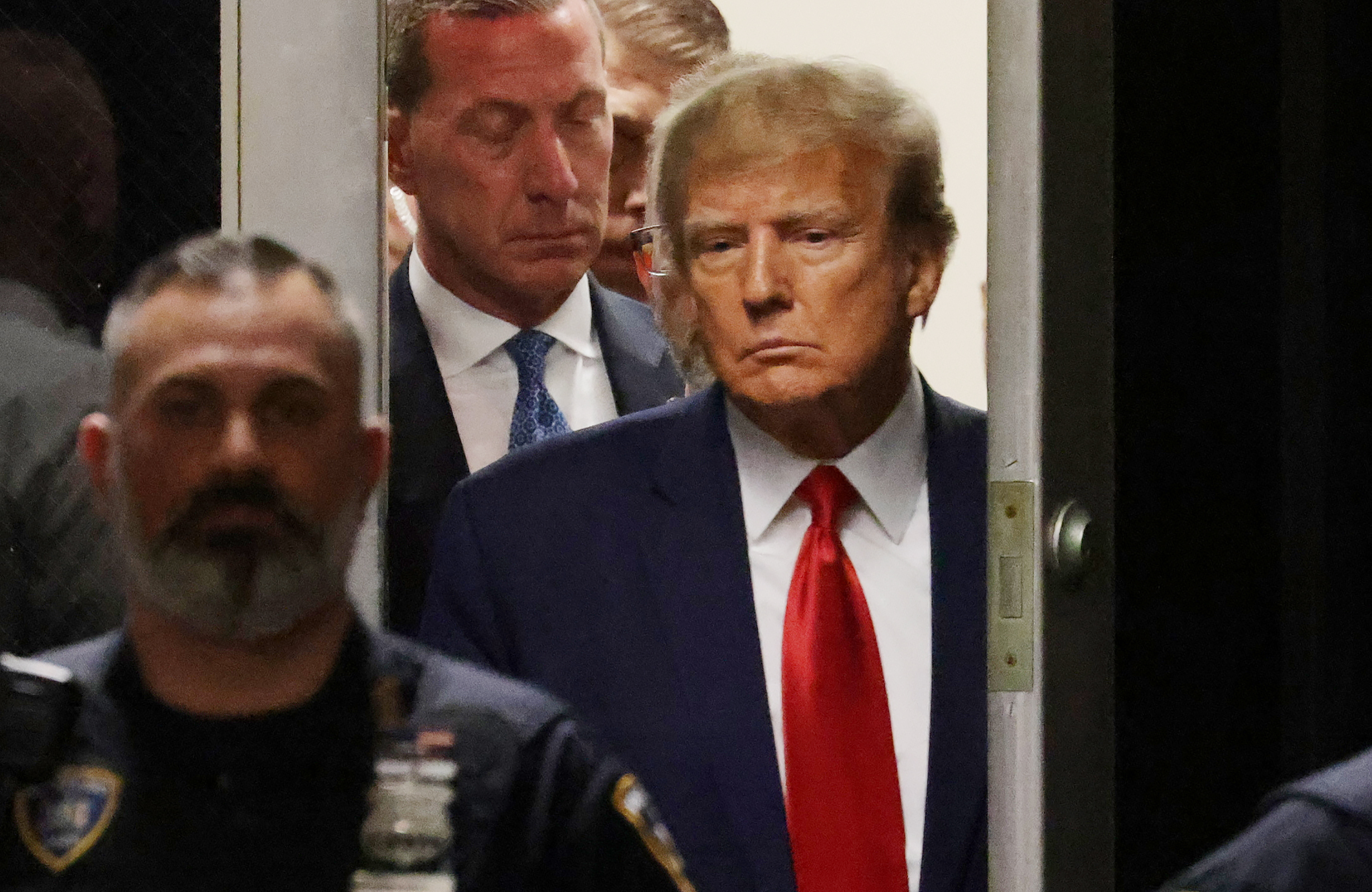Washington, D.C. - In recent weeks, a growing chorus of voices from both the left and the anti-Trump right has ventured into the realm of legal speculation, suggesting that former President Donald Trump may be constitutionally ineligible to run for re-election in 2024. They aim to employ lawsuits to disqualify Trump from state ballots based on a relatively obscure section of the 14th Amendment. While this prospect may sound like a quick and easy way to sideline Trump, the path forward is fraught with challenges and will likely end up in the Supreme Court.
The central legal question revolves around whether the 14th Amendment, adopted in 1868 in the aftermath of the Civil War, disqualifies Trump from seeking the presidency once more. The amendment stipulates that individuals who have engaged in insurrection or rebellion against the United States or have provided aid or comfort to its enemies cannot hold any office in the government. Congress can remove this disability with a two-thirds majority vote.
The recent surge in debate surrounding the 14th Amendment was triggered by a law review article authored by constitutional law professors William Baude and Michael Stokes Paulsen. They argue that Trump's actions in attempting to overturn the 2020 election render him ineligible to run again. While this perspective gained initial traction, it has faced significant pushback, including from prominent conservatives.
The heart of the debate hinges on whether Trump's actions qualify as insurrection or rebellion, a complex issue that lacks clear historical precedent. The 14th Amendment's original intent is a matter of contention, as it appears to require congressional legislation to implement its provisions, according to a ruling by Chief Justice Salmon Chase shortly after the amendment's adoption. Nevertheless, the question remains unsettled.
Efforts to disqualify Trump from the ballot have faced resistance even among government officials. Democratic secretaries of state have expressed skepticism about their ability to unilaterally exclude Trump, preferring to leave the matter to the courts. Republican Georgia Secretary of State Brad Raffensperger, known for his role in the 2020 election, has also rejected the idea.
As of now, two lawsuits seeking to prevent Trump from appearing on state ballots have been filed in Colorado and Minnesota, with more likely to follow. Should any of these lawsuits succeed in removing Trump from a state's ballot, the case will inevitably reach the Supreme Court for a final decision.
However, the composition and leanings of the Supreme Court present formidable obstacles for Trump's opponents. The current conservative supermajority on the Court, largely appointed by Trump, has already reversed significant legal precedents on various issues. The practical implication is that it would be unwise to rely on an originalist interpretation of the 14th Amendment alone to sway conservative justices.
Furthermore, the polarized nature of the Court raises doubts about the possibility of attracting conservative justices to vote against Trump. Trump's appointments, including Justices Neil Gorsuch, Brett Kavanaugh, and Amy Coney Barrett, owe their positions to the former president, making it improbable that they would distance themselves from him on such a crucial matter.
For any disqualification effort to succeed, a strong and bipartisan legal argument with broad ideological appeal would be necessary. While such a consensus may eventually emerge, the focus for now should be on the traditional method of challenging Trump at the ballot box.
In an era where the Supreme Court's reputation has been tarnished and calls for reform are growing louder, pinning hopes on a legal miracle may prove to be more of a political wish than a practical reality. Trump's opponents would do well to prepare for a battle where the outcome depends on voters, not judges.


